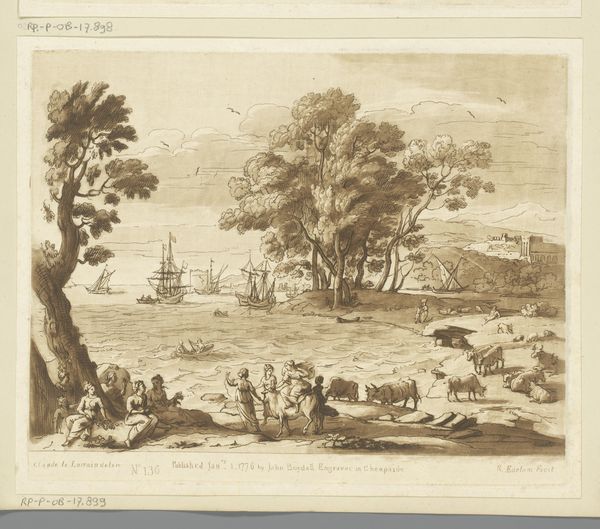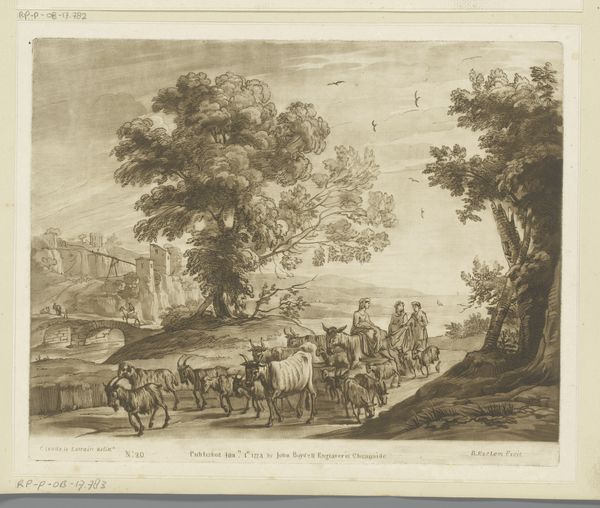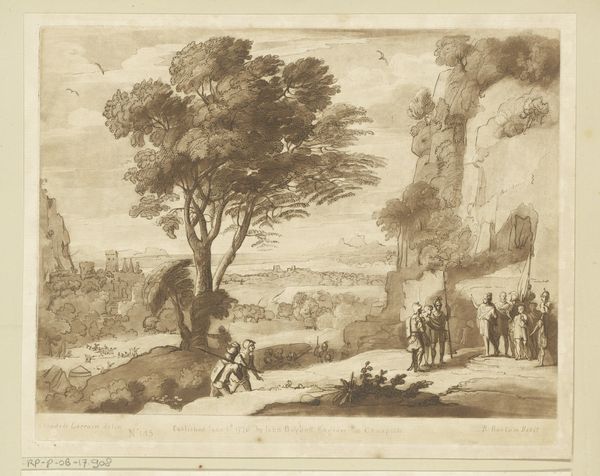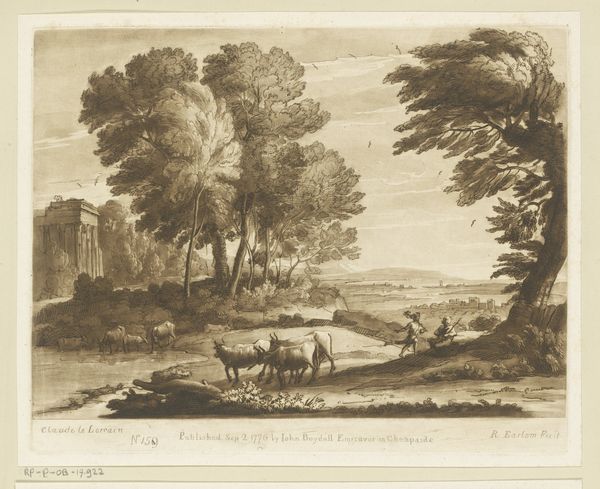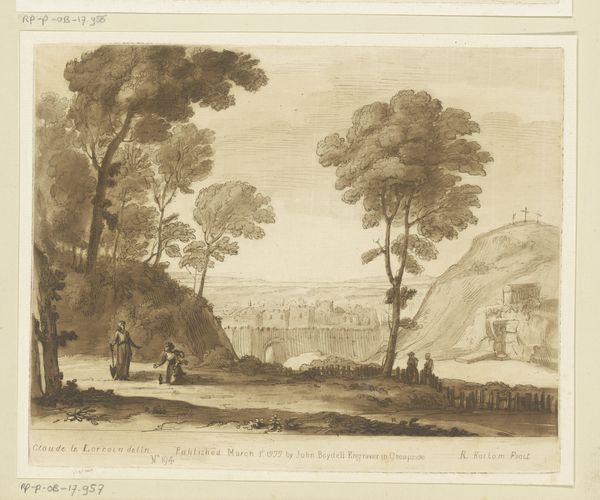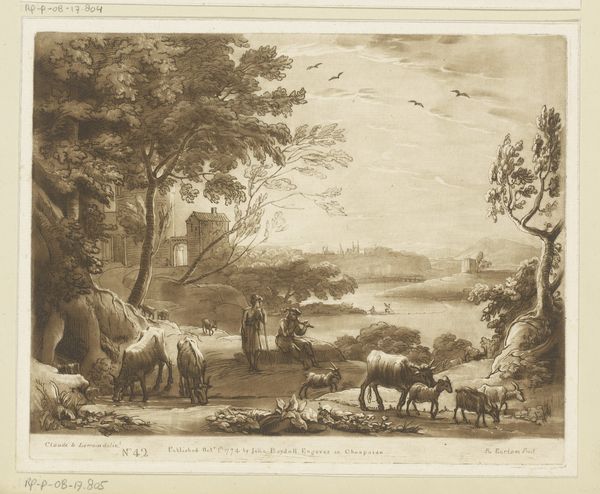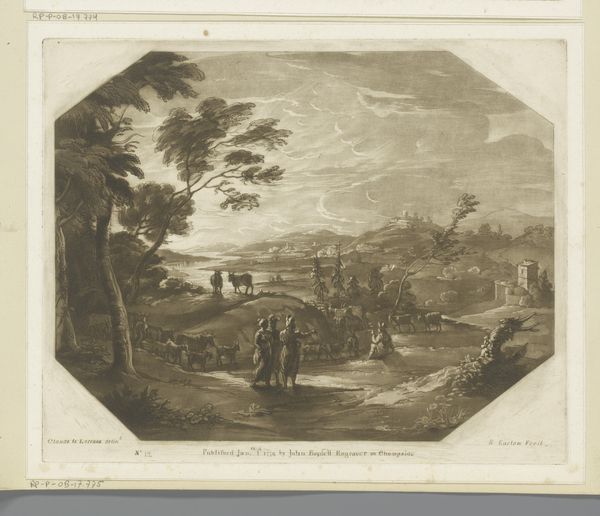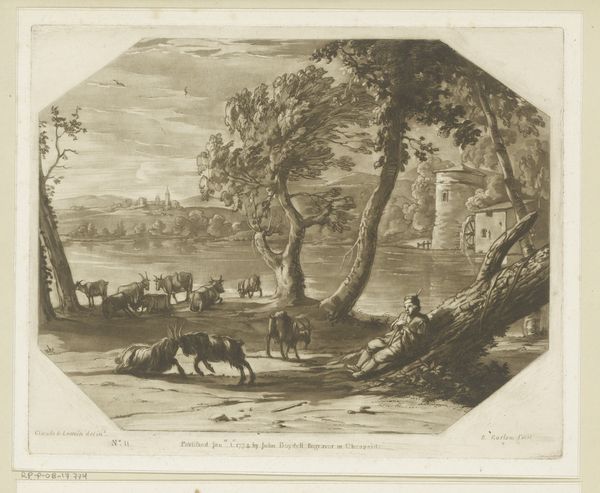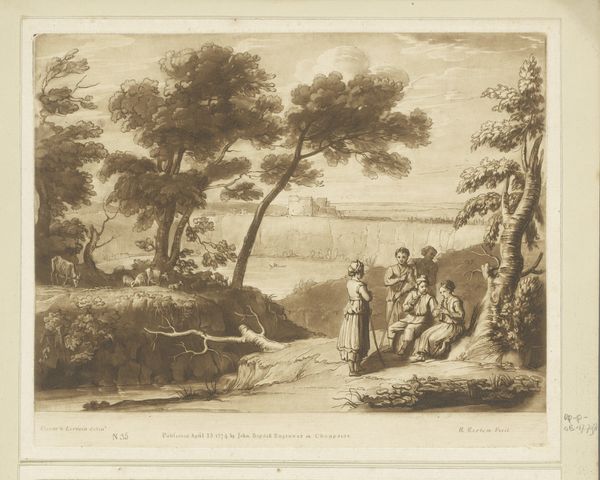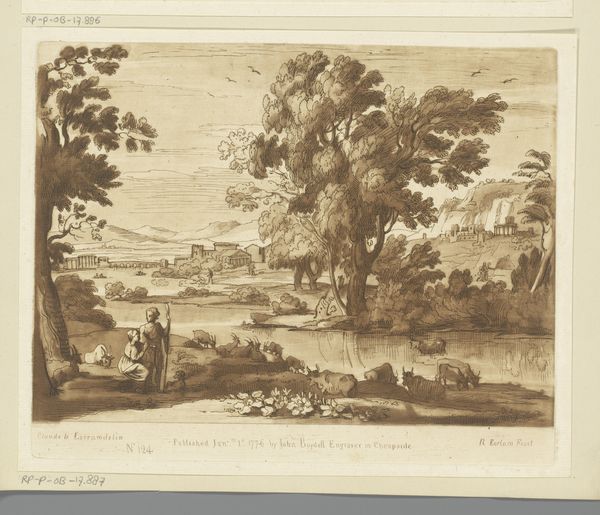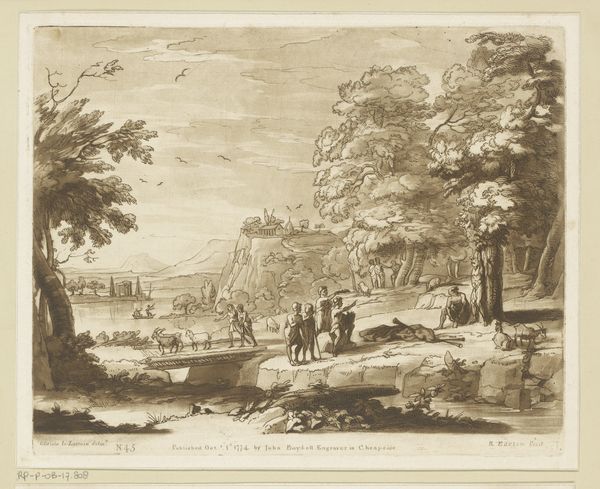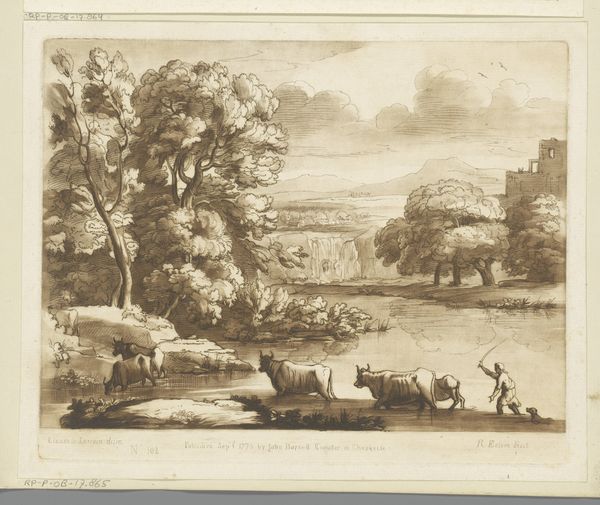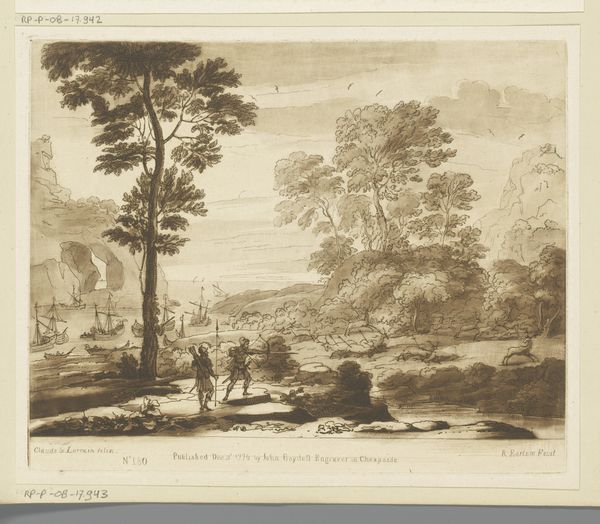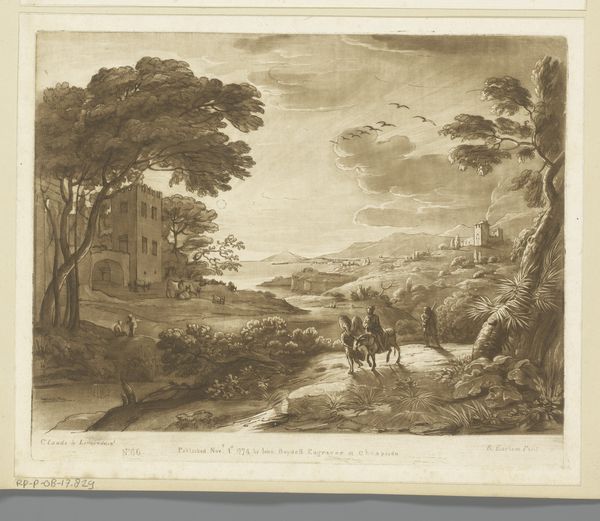
Landschap met rustende herders onder een boom en veedrijver Possibly 1774
0:00
0:00
richardearlom
Rijksmuseum
print, etching
# print
#
etching
#
landscape
#
genre-painting
Dimensions: height 207 mm, width 257 mm
Copyright: Rijks Museum: Open Domain
This print, "Landschap met rustende herders onder een boom en veedrijver," was made by Richard Earlom in 1776 using etching and mezzotint techniques. The velvety texture of the image comes from the mezzotint process, which involves roughening the entire copper plate with a tool called a rocker, then selectively smoothing areas to create lighter tones. Earlom then likely used etching for the finer lines, like the figures and foliage. The social context here is interesting. Earlom was a skilled printmaker, reproducing the work of others, in this case, Claude Lorrain. Printmaking in the 18th century was a commercial enterprise, a way to disseminate images widely, catering to a growing middle class with an appetite for art. Earlom's expertise and the labor-intensive processes involved highlight the intersection of art, craft, and early capitalist modes of production. Appreciating the making helps us understand the cultural dynamics at play, beyond just the image itself.
Comments
No comments
Be the first to comment and join the conversation on the ultimate creative platform.
